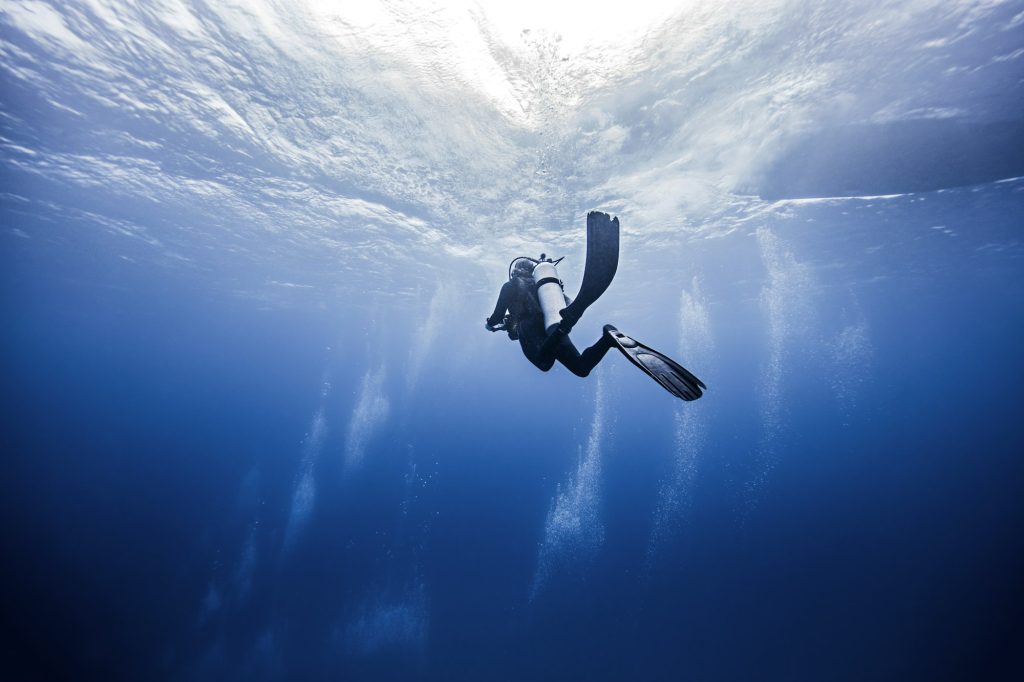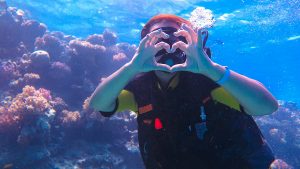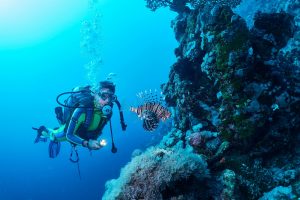
Scuba diver in Cancun, Mexico
Scuba diving is both a hobby and sport that immerses individuals into the marine realm, where there are endless wonders. Due to the inherent dangers associated with diving, it is imperative that divers learn all necessary equipment and safety precautions prior to venturing under water. Furthermore, recording their dives post dive is beneficial so as to remember what happened and plan for future dives more effectively.
SCUBA stands for “self-contained underwater breathing apparatus”, and allows people to explore underwater caves, coral reefs and ghostly shipwrecks. Scuba divers may either use this activity recreationally or professionally as diving instructors/guides/archaeology specialists/photographer/marine scientists.
Scuba divers utilize air tanks to breathe underwater, typically wearing wetsuits for warmth and protection. Their BCD allows them to either float or sink depending on their needs; adding or subtracting air via dump valves controls their buoyancy; they can adjust how much weight they wear to control buoyancy based on saltwater or freshwater weight differences, with weight distribution providing stability between surface pressure equalization between diver and depth pressure equalization by keeping pressure equalized throughout their dive experience.
Out-of-air incidents, more commonly referred to as out-of-air emergencies, are the primary scuba emergencies. Without access to oxygen, divers can die within minutes without access. To reduce your chances of an out-of-air incident occurring again, always dive within your limits and be aware of your buddy’s status while underwater. In addition, use your scuba gauge as an alert for when to ascend back to the surface as well as closely monitoring air supply on every dive.
Diving safety stop is another key tip, providing divers with an opportunity to slowly release air from their lungs in order to prevent swelling, which could rupture or explode them and lead to ruptured or expanded lung tissue. A three to five minute safety stop should be performed after every dive for maximum safety.
Other tips for safe scuba diving include resting well before embarking on any dive, planning it in advance, and adhering to any depth or time limits set for it. It is advisable to test all equipment prior to diving and debrief afterwards. People should always dive with a partner; keep track of air supplies so as not to run out prematurely and be aware of decompression limits as well as not litter or dump anything into the water.




